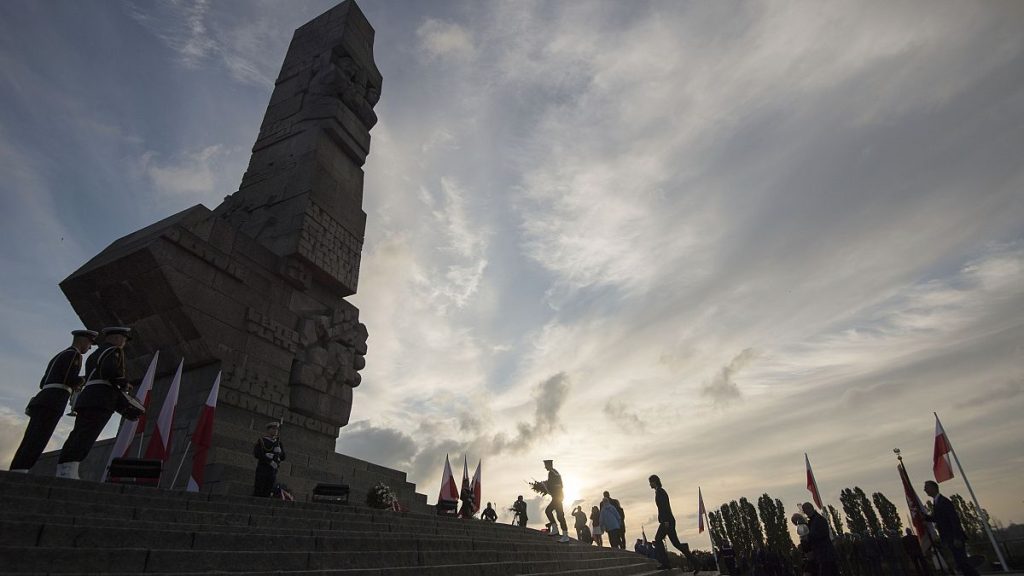Poland recently marked the 85th anniversary of Nazi Germany’s invasion that triggered World War II, with leaders emphasizing the importance of a strong defense amid the ongoing conflict in Ukraine. President Andrzej Duda and other officials attended solemn ceremonies to commemorate the event, including a observance in the town of Wielun, the first civilian target of German bombing in 1939. Duda called on Germany to make amends for the atrocities committed during the war, while Prime Minister Donald Tusk highlighted the need for unity and strength in the face of aggression in Ukraine. Tusk also emphasized the importance of never again being alone in the fight against tyranny.
During World War II and German occupation, Poland lost 6 million citizens, including 3 million Jews, amounting to a sixth of its population. The country suffered significant losses to infrastructure, industry, and agriculture. Poland’s previous government had demanded $1.3 trillion in damages from Germany, but the current Cabinet led by Tusk has shifted towards seeking some form of compensation to improve relations between the two nations. Germany, however, maintains that the issue is closed as it had already paid reparations to the Eastern Bloc after the war. The unresolved matter of compensation continues to be a point of contention between the two countries.
The observances in Poland also served as a reminder of the sacrifices made by those who fought for their country’s freedom. At the monument on the Westerplatte peninsula, where Polish soldiers bravely defended against a German warship’s attack, wreaths were laid and a memorial roll call honored the fallen heroes. The resilience and heroism displayed by the outpost’s troops in the face of overwhelming odds became a symbol of patriotism and determination in the fight against tyranny. Poland continues to honor the memory of those who gave their lives in defense of their homeland.
President Duda’s comments at the observance highlighted the distinction between forgiveness and compensation for the damages inflicted during the war. While acknowledging the importance of reconciliation and admitting guilt, Duda emphasized the need for Germany to address the issue of compensation for the harm caused. The unresolved question of reparations remains a key issue in the relationship between Poland and Germany, with Warsaw asserting that the matter has not been settled to date. The call for compensation serves as a way to acknowledge the lasting impact of the war on Poland and its citizens.
Prime Minister Tusk’s statements at the commemoration underscored the ongoing threat of aggression in the region, particularly in light of the conflict in Ukraine. Tusk emphasized the importance of unity and readiness to defend against any potential risks to Poland’s security and sovereignty. By building a modern and strong army, Poland aims to contribute to the strength and unity of NATO and the European continent, ensuring that the mistakes of the past are not repeated. Tusk’s call for “Never Again Alone” reflects Poland’s commitment to standing together with its allies in the face of external threats and challenges.
As Poland reflects on the 85th anniversary of Nazi Germany’s invasion and the atrocities of World War II, the country remains determined to seek justice and recognition for the losses it endured. The ongoing discussions about compensation from Germany underscore the complex and lingering effects of the war on Poland and its people. The solemn ceremonies and observances serve as a reminder of the sacrifices made by those who fought for freedom and justice, and the importance of unity and strength in facing current and future challenges. Poland’s resilience and determination in the face of adversity reflect a commitment to honoring the memory of those who perished and ensuring that their sacrifices are never forgotten.


